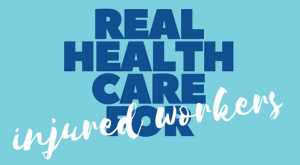Important changes to WSIB’s provision of health care to migrant farm workers
 As a result of relentless pressure from migrant workers and their advocates, the Workplace Safety and Insurance Board (WSIB) has changed the way it provides health care to injured migrant workers in Ontario and in their home countries.
As a result of relentless pressure from migrant workers and their advocates, the Workplace Safety and Insurance Board (WSIB) has changed the way it provides health care to injured migrant workers in Ontario and in their home countries.
More work needs to be done, but as of January 15, 2018, the following changes are in effect for all workers in the Seasonal Agricultural Workers Program (SAWP) and the agricultural stream of the low-skilled Temporary Foreign Workers Program (TFWP):
In Ontario, the WSIB will now:
- Let migrant workers know that the WSIB can arrange taxis free of charge so that they can attend health care appointments
- Help workers find physiotherapy and other health care services in Ontario if they don’t know where to find them
- Tell employers that they expect workers to be able to speak with their doctors privately and that WSIB can arrange interpretation if the worker requests it
- Contact the worker directly a minimum of once per month to discuss ongoing return to work and recovery issues, and whether the worker needs assistance in accessing health care
- Send a letter to the worker outlining the availability of taxis and the help the WSIB can provide in finding and accessing health care
- If there is doubt to the worker’s ability to access health care in the home country, consider whether it is necessary for the worker to remain in Ontario for health care at the time of repatriation; and if so, pay accommodation expenses in Ontario (room and board) at approved rates.
In the home country, the WSIB will now:
- Pay upfront transportation costs (the default is mileage) for migrant farm workers to attend health care appointments in the home country. WSIB will provide upfront payment based on approved number of treatments.
- Contact health care providers to arrange direct billing – and, if needed, help workers find providers who will bill the WSIB directly. The WSIB can pay these health care providers through wire transfers to mitigate the delay of sending international cheques.
- Contact the worker directly a minimum of once per month to discuss ongoing return to work and recovery issues, and whether the worker needs assistance in accessing health care
- Send a letter to the worker when they are repatriated outlining: the types of treatments WSIB can approve (including mental health treatment); that WSIB can help find and pay directly for treatment; and that WSIB can pay their transportation expenses up front.
These changes are outlined in the following documents:
- Health care in Ontario template letter to migrant farm workers,
- Heath care after repatriation template letter to migrant farm workers
- Migrant farm workers WSIB training doc
While the WSIB has committed to these changes, it’s important to make sure they are enforced
To promote enforcement, we encourage people to:
- Share the training document and the sample letters with migrant workers and anyone who works with migrant workers
- Follow up with the Fair Practices Commission and IAVGO Community Legal Clinic if WSIB is not following these practices
- Attend our webinar on the changes and the current status of WSIB and migrant workers – stay tuned for more information
- Join us for a conference call later this year to evaluate how the WSIB is following these practices
For some background to the issues, campaign and other migrant worker community resources, check out:
- Justice for Migrant Workers’ Harvesting Freedom caravan and long-time organizing with injured migrant workers
- The Migrant Worker Health Project (amazing resource!)
- OHCOW Migrant Farmworker Program
- Injured Workers Action for Justice’s Health Care Campaign
- Migrant farm worker launches discrimination complaint against WSIB, Toronto Star, March 21, 2016 and Migrant worker program called ‘worse than slavery’ after injured participants sent home without treatment, CBC’s Go Public, May 16, 2016
- IAVGO’s work with migrant and precarious workers
- And of course so much more…







